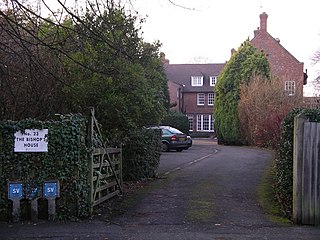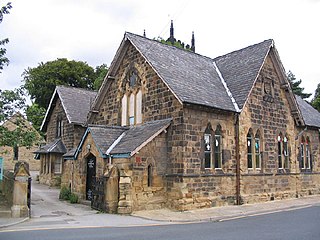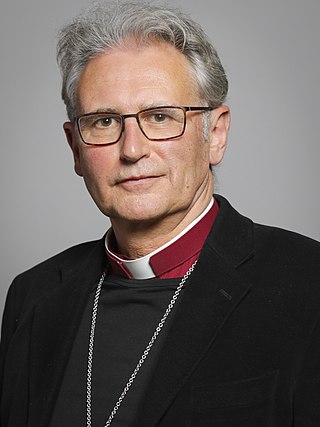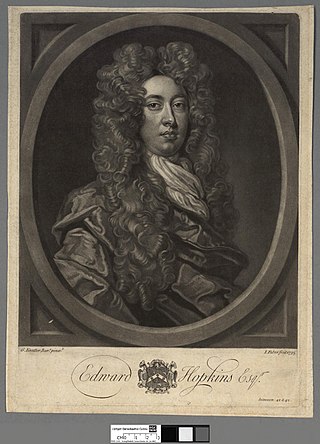Sources
John Astley, The monumental inscriptions in the parish church of St. Michael, Coventry (1885)
John William Clay, North Country Wills (1912)
Ralph Swillington (died 1525) was Recorder of Coventry and Attorney General to Henry VIII.
Swillington was Attorney General for the short period of time between 1524 and his death in the following year. In his will (dated 11 July 1525), he left land in Driffield, Yorkshire, to his nephew, George Swillington. A monument in St. Michael's Church, Coventry, commemorates Swillington, his wife Elizabeth (Babthorpe) and her other husband, Thomas Essex.
John Astley, The monumental inscriptions in the parish church of St. Michael, Coventry (1885)
John William Clay, North Country Wills (1912)

The Cathedral Church of Saint Michael, commonly known as Coventry Cathedral, is the seat of the Bishop of Coventry and the Diocese of Coventry within the Church of England. The cathedral is located in Coventry, West Midlands, England. The current acting bishop is Ruth Worsley and the current dean is John Witcombe.
General Baptists are Baptists who hold the general or unlimited atonement view, the belief that Jesus Christ died for the entire world and not just for the chosen elect. General Baptists are theologically Arminian, which distinguishes them from Reformed Baptists.

His Majesty's Attorney General for England and Wales is the chief legal adviser to the sovereign and Government in affairs pertaining to England and Wales as well as the highest ranking amongst the law officers of the Crown. The attorney general is the leader of the Attorney General's Office and currently attends the Cabinet. Unlike in other countries employing the common law legal system, the attorney general does not govern the administration of justice; that function is carried out by the secretary of state for justice and lord chancellor. The incumbent is also concurrently advocate general for Northern Ireland.

His Majesty's Solicitor General for England and Wales, known informally as the Solicitor General, is one of the law officers of the Crown in the government of the United Kingdom. They are the deputy of the Attorney General, whose duty is to advise the Crown and Cabinet on the law. They exercise the powers of the Attorney General which are delegated to them under section 1 of the Law Officers Act 1997. Despite the title, the position is usually held by a barrister as opposed to a solicitor.

The Bishop of Coventry is the ordinary of the Church of England Diocese of Coventry in the Province of Canterbury. In the Middle Ages, the Bishop of Coventry was a title used by the bishops known today as the Bishop of Lichfield.

Coventry, a city in the West Midlands, England, grew to become one of the most important cities in England during the Middle Ages due to its booming cloth and textiles trade. The city was noted for its part in the English Civil War, and later became an important industrial city during the 19th and 20th centuries, becoming the centre of the British bicycle and later motor industry. The devastating Blitz in 1940 destroyed much of the city centre, and saw its rebuilding during the 1950s and 60s. The motor industry slumped during the 1970s and 80s, and Coventry saw high unemployment. However, in the new millennium the city, along with many others saw significant urban renaissance and in 2017 it was announced that the city had been awarded the title of 2021 UK City of Culture.

Garforth is a town in the metropolitan borough of the City of Leeds, West Yorkshire, England.
The Bishop of Lichfield is the ordinary of the Church of England Diocese of Lichfield in the Province of Canterbury. The diocese covers 4,516 km2 of the counties of Powys, Staffordshire, Shropshire, Warwickshire and West Midlands. The bishop's seat is located in the Cathedral Church of the Blessed Virgin Mary and Saint Chad in the city of Lichfield. The Bishop's residence is the Bishop's House, Lichfield, in the cathedral close. In the past, the title has had various forms. The current bishop is Michael Ipgrave, following the confirmation of his election on 10 June 2016.

Swillington is a village and civil parish near Leeds, West Yorkshire, England, in the City of Leeds metropolitan borough. It is situated 5 miles (8 km) east from Leeds city centre, north of the River Aire, and is surrounded by streams including Fleakingley Beck. In 2001, Swillington had a population of about 3,530, reducing to 3,381 at the 2011 Census.

St Mary's Church is located on Church Lane next to Swillington Primary School, on Wakefield Road, Swillington, West Yorkshire, England.
The Swiss Brethren are a branch of Anabaptism that started in Zürich, spread to nearby cities and towns, and then was exported to neighboring countries. Today's Swiss Mennonite Conference can be traced to the Swiss Brethren.
John Green, is a Church of England priest and former Royal Navy chaplain. He was Chaplain of the Fleet, Director General of the Naval Chaplaincy Service and Archdeacon for the Royal Navy from 2006 to 2010. He was Archdeacon Pastor in the Diocese of Coventry from 2012 until his retirement in 2017.
Richard Sampson was an English clergyman and composer of sacred music. He was an Anglican bishop of Chichester, and subsequently of Coventry and Lichfield.
Sir Richard Lyster was an English judge and Chief Justice of the King's Bench.

Christopher John Cocksworth is a Church of England bishop in the open evangelical tradition who served as Bishop of Coventry from 2008 to 2023. Prior to becoming bishop, he was a university chaplain and the Principal of Ridley Hall, Cambridge (2001−2008). He took up the position of Dean of Windsor in 2023.
John Dudley Irvine is a British Anglican priest.
Joseph Potter (1756–1842), was an English architect and builder from Lichfield, Staffordshire in the United Kingdom. Potter had a considerable practice in Staffordshire and its neighbouring counties in the late eighteenth and early nineteenth century. Potter lived in Pipehill, south-west of Lichfield, and had his office in St John's Street. Joseph Potter's son Joseph Potter Jnr. took over his father's practice after his death and went on to design many of his own buildings in the late nineteenth century.

St Mary's Priory and Cathedral was a Roman Catholic institution in Coventry, England, founded in the 12th century by transformation of the former monastery of St Mary, and destroyed during the Dissolution of the Monasteries in the early 16th century. It was located on a site north of Holy Trinity and the former St Michael's parish churches in the centre of the city, on a site bordered by Priory Row to the south, Trinity Street to the west, and the River Sherbourne to the north. Excavated remains from the west end of the cathedral are open to the public.

All Saints' Church, is a Grade I listed parish church in the Church of England in Babworth, Nottinghamshire.

Edward Hopkins, of Coventry, was an English Whig politician who sat in the English and British House of Commons between 1701 and 1727 and in the Parliament of Ireland from 1721 to 1727. He held a number of government posts in Ireland.